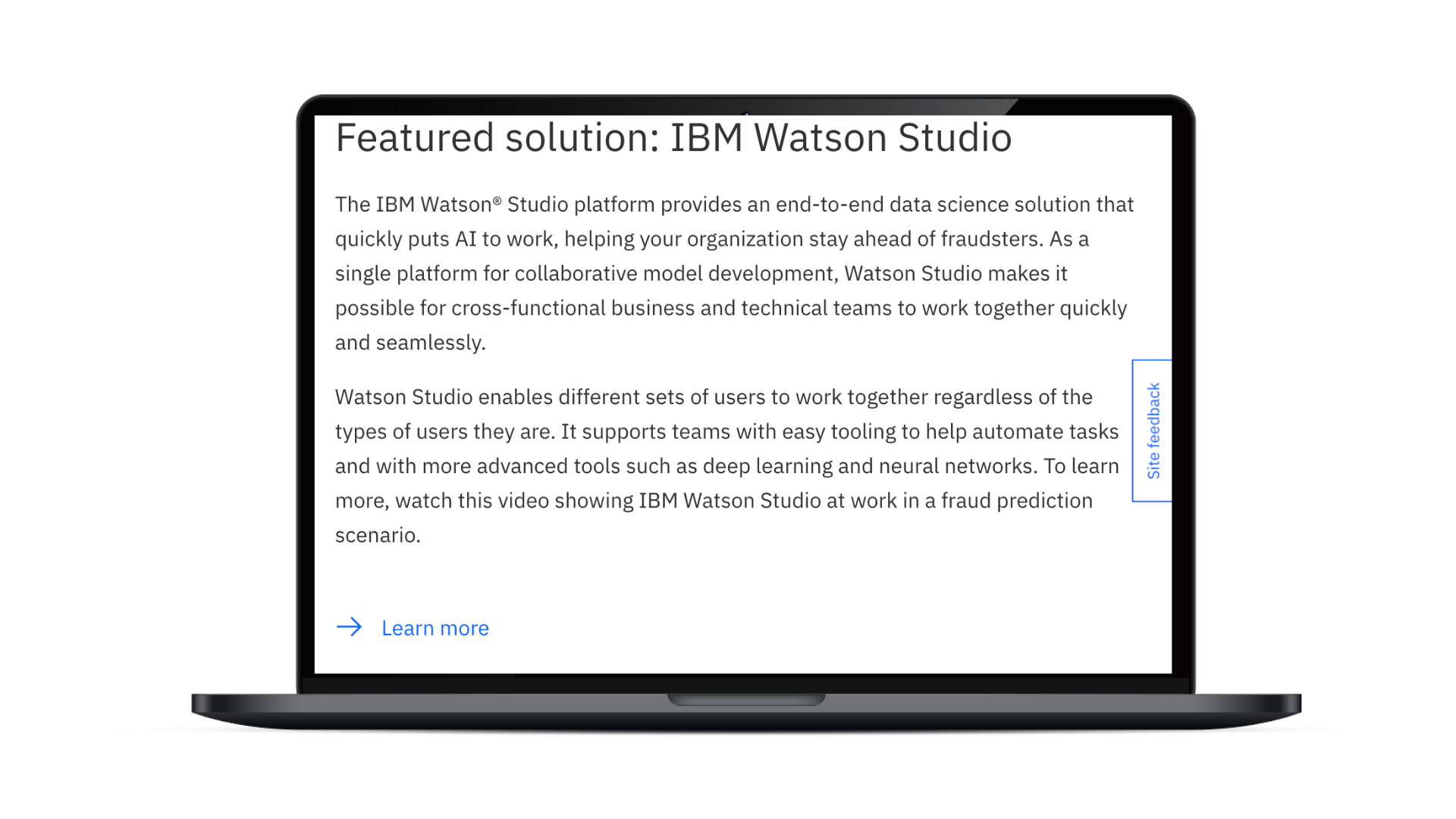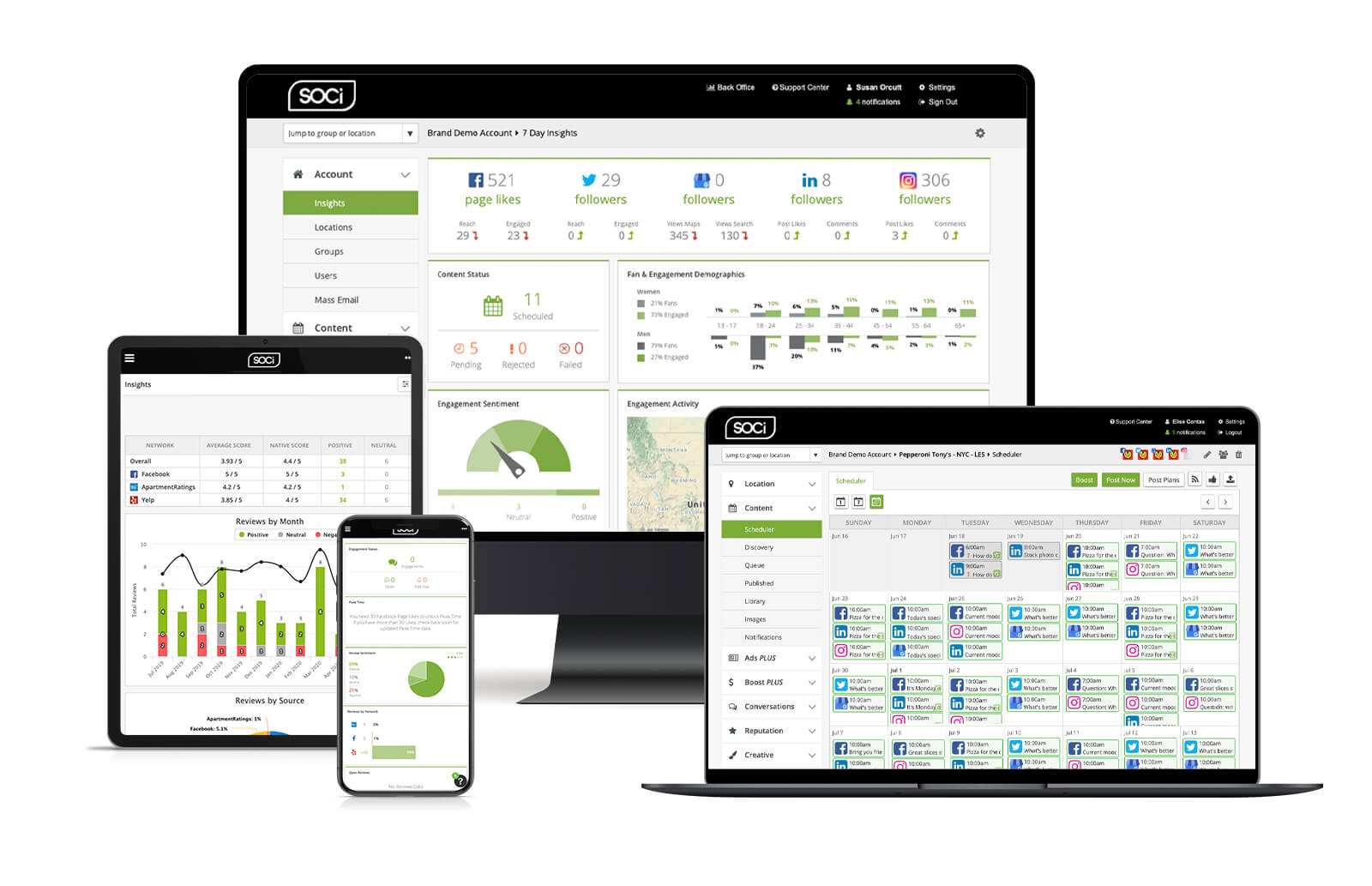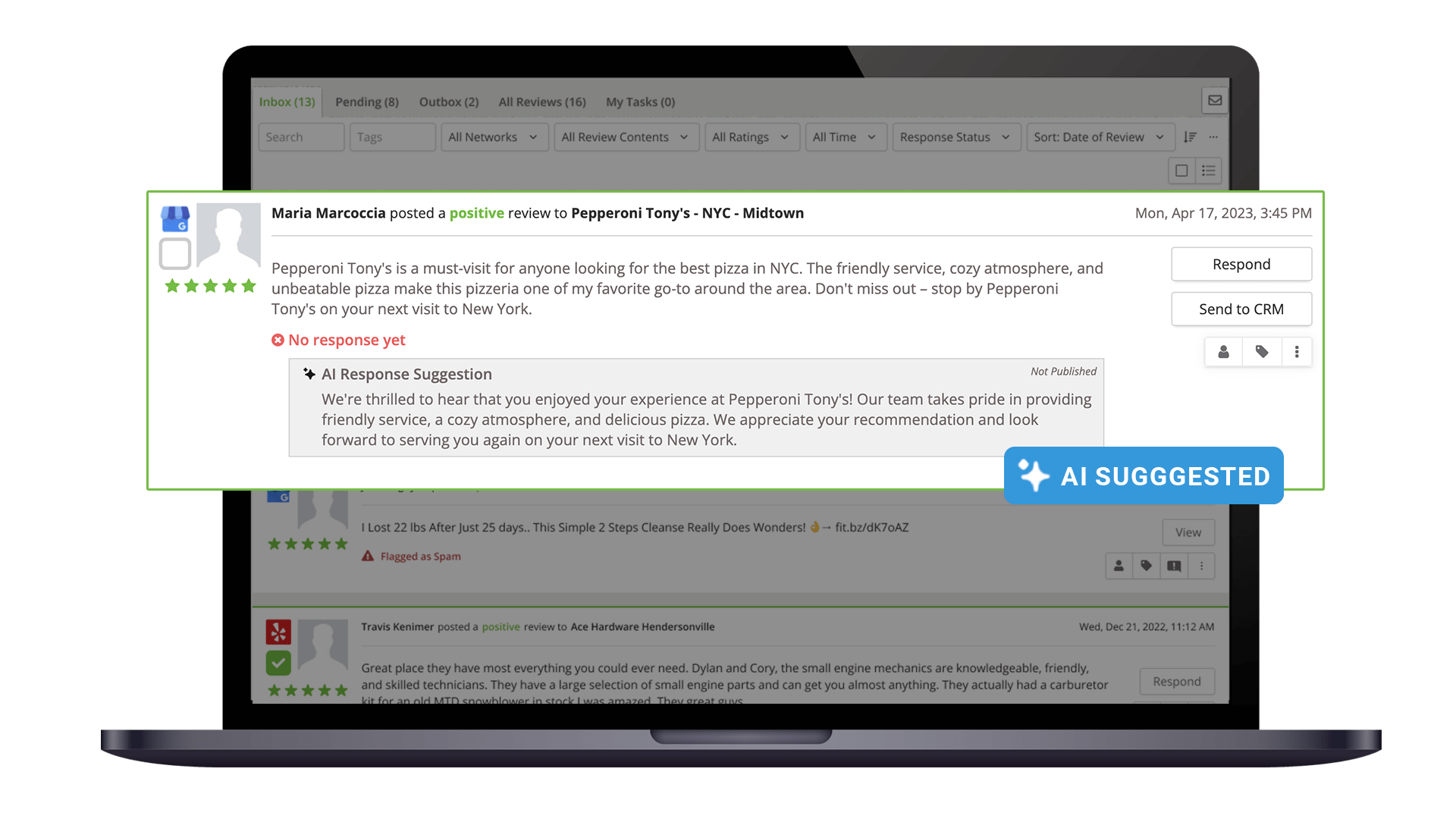6 Ways to Build Consumer Trust in the World of AI

6 Ways to Build Consumer Trust in the World of AI
In 2021, the market value for artificial intelligence (AI) was $100 billion and is expected to increase significantly over the next decade. Additionally, over 80 percent of digital marketing experts integrate some form of AI technology into their marketing efforts.
The data speaks for itself — AI is here to stay. You’re falling behind if your multi-location enterprise isn’t incorporating AI into your marketing strategies.
While AI is a must, many marketers are hesitant to implement it because of concerns that it will impact consumer trust. Will consumers care if your brand starts leveraging AI? Will the use of AI negatively impact your bottom line? These are questions many marketers ask when considering AI.
If you’re using AI correctly, your brand should be able to maintain consumer trust and ultimately improve your bottom line. That’s where this blog comes in! We discuss six ways to build consumer trust while using AI in marketing.
For additional insight on leveraging AI in your marketing strategy, check out our CMO Masterclass: Transforming Localized Marketing With Generative AI to learn more!
Now, let’s get into building consumer trust!
1. Include a Human Touch
Anyone who has leveraged AI for a while will tell you that human touch is still needed. While generative AI platforms like ChatGPT are very advanced, they have limitations and require human oversight. Consumers will be more likely to trust your brand if they know that humans are still at the core of your business model. According to one survey, 77 percent of consumers believe positive customer experiences (CXs) still need an element of human touch.
Providing access to human support when needed is also essential. Many multi-location brands leverage chatbots, which often include AI functionalities. It’s essential for customers who need help resolving their issues to be connected with a human who can expedite a solution.
Consumers still want to feel a personal connection, and often AI can’t do that, emphasizing the need for a human touch. As you begin to leverage AI, you’ll find areas where it excels at and others where it falls short. When leveraging AI, it’s crucial to find a balance.
2. Leverage Transparency
Another essential way to maintain trust with your consumers is through transparency. Fifty-eight percent of consumers say they want companies to be clear about when AI is being used. This doesn’t mean that your multi-location brand has to send out a press release announcing all the ways you use AI, but honesty is vital if asked.
Additionally, if you find there are ways AI will benefit your customers, be sure to highlight those examples. For instance, are you leveraging AI to implement a 24/7 chatbot that addresses customer concerns? How has AI been used to improve the customer experience?
In the example below, IBM highlights how they use AI for fraud detection and prevention. Sharing these details with your customer will make your customers feel as though the use of AI isn’t something to be hidden, again boosting trust and building loyalty.

3. Address Concerns
While some 58 percent of Americans have heard of ChatGPT, one of the more commonly known types of AI, only 14 percent have tried using it themselves, and only one in ten of those respondents have used it for work.
Our recent whitepaper, The High Cost of Invisibility for Multi-Location Enterprises, also found that consumer ghosting is rampant, costing the average retail brand up to $30M a year. The lack of communication with consumers and low levels of knowledge around AI opens a window for misconceptions and concerns.
As a marketer, it’s your job to address these concerns proactively. For instance, you can highlight that AI doesn’t solely run your marketing efforts. Humans are still overseeing everything and ensuring nothing falls through the cracks. As we’ll mention below, privacy issues may also be a concern. Assure customers that their data is safe before the issue comes up.
Proactively addressing concerns is essential, but how can you determine a customer’s concerns?
You can leverage the following tactics to find customers’ concerns before they turn into more significant issues:
- Conduct surveys and include a spot for them to highlight any concerns they may have about AI.
- Leverage social listening tools to understand current conversations around AI and marketing.
- Have a focus group with a subset of your target audience to gain insight.
- Pay attention to reviews — you may find comments about AI in them.
As more concerns come up, it’s essential to address them promptly within your products, services, and messaging.
4. Consider A/B Testing
You can also build consumer trust in your brand by starting small. Try A/B testing when you’re using AI versus your marketing team. Does it make a difference if AI responds to a review versus a local team member? If the results are similar, and you’re saving your marketing team time and effort, AI is the clear winner.
Similarly, if you compare two blogs, one written by AI and the other written by a human, and the blog written by a human performs better, you know that AI might be less helpful in that area.
A/B testing AI is precisely that — a test. You’re not throwing caution to the wind and making a huge change all at once. If consumers see that you’re leveraging AI smartly and cautiously, they’ll be more likely to maintain trust in your brand.
5. Highlight Data Privacy
We’ll keep this one short and sweet! While this may not be an issue for all brands, some customers may worry that AI can interfere with data privacy. It shouldn’t be an issue if your multi-location brand has implemented the appropriate measures to protect data from unauthorized access and data breaches.
As mentioned above, being proactive about customers’ concerns about using AI is essential! Highlighting which privacy laws your brand adheres to and reassuring customers that their data is safe, even when using AI, can build confidence. Below is an example of SOCi’s privacy page on our website. Sharing something similar can be helpful!

6. Evaluate Results and Improve
Lastly, while it may seem like a no-brainer, reviewing what you’ve learned through AI and making necessary adjustments is important. It’s essential to focus on driving real value for your customers through AI. If you highlight how AI has improved the customer experience (CX), more customers will likely be on board.
Additionally, if there are ways that AI has weakened the CX, it’s time to make adjustments. Even if some uses of AI increase efficiency internally but hurt consumer trust, they should be re-evaluated. Saving an hour or two a week isn’t worth losing consumer trust.
The more you incorporate AI into your marketing efforts, the better you’ll understand where it works and where it doesn’t. It’s also worth noting that this can vary by industry and location. What works for one business may not work for another; similarly, what one target audience is OK with likely differs from another.
Build Consumer Trust and Win More Customers
You now have the tools needed to build and maintain consumer trust in AI. As a multi-location brand, navigating AI while managing marketing strategies across 100s or 1,000s of business locations can be challenging. That’s where SOCi comes in.
Through advanced artificial intelligence and machine learning, the SOCi Genius platform provides multi-location enterprises with actionable insights and recommendations while automating intelligent workflows through AI at scale.

From managing surveys to online reputation management, and more, SOCi has you covered.
We recently introduced Genius Reviews. SOCi Genius Reviews integrates our award-winning review response management tool with GPT-4 to transform how marketers respond to reviews.

It combines cutting-edge AI technology, advanced on-brand training models, and leading localization and automation tools to deliver a highly customizable and automated system for managing reviews.
For more insight into how SOCi can be your multi-location marketing partner with AI capabilities that build consumer trust, request a demo today!







